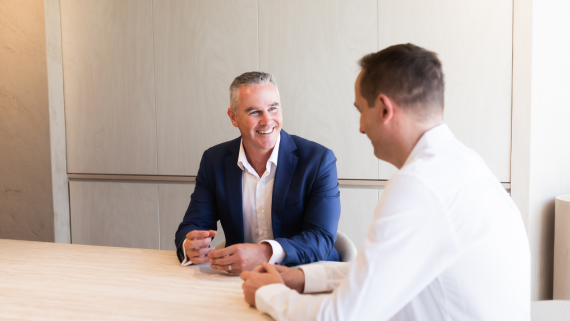
Subscribe to Spotify![]()
In this episode, we meet Cort Davies, Co-Author of 1 Habit, Cancer Thriver and Stress Management Expert and we talk about:
- The mental and biological side of stress that we all must understand
- The role of stress in cancer outcomes and stress management in improving survival rates
- What is stress doing to us and society
- What you can do to fundamentally reduce the amount of stress in your life
About Cancer and Stress
Some horrifying stats:
- 9,600,000 People Died Of Cancer In 2018 Worldwide in 2018
- 50% Of Women Born Today Will Statistically Experience Cancer
- 33% Of Men Born Today Will Statistically Experience Cancer
“The biggest thing we know now, through major funded research is that stress biology can speed up cancer, meaning the hormones that you emit during a stress state can feed tumours. And we don't want to do that.”
Connect with Cort Davies here
- Cort's Website
- Cort Co-Authored this book: “1 Habit to Beat Cancer: Secrets of the Happiest Cancer Thrivers on the Planet”
- YouTube
Watch Cort's Ted Talk:
On the role of stress in disease and cancer
Stress is the biggest cause of disease. What the science is saying is that, for instance, a female that is chronically isolated and doesn't have social support is nine times more likely to get breast cancer.
Most of us think that drinking six cups of coffee and working 14 or 15 hours a day…ost of us think that's normal. But the problem is our body was designed for stress that was happening 40,000 years ago, not today. The typical Workday of someone 40,000 years ago was waking up, finding something to eat and then re resting the rest of the day. That's what our bodies were designed for. And we have this, um, you know, we have this kind of, you know, we feel like it's like kind of like a, like a, like a badge of honour where, you know, we overwork ourselves and unfortunately what happens after we overwork ourselves is disease sets in. And I'm not telling everyone out here that they're going to get cancer, disease can be many different things [illnesses].
Because if you're feeling tension in your body now from being over-caffeinated, your hair is going bald or something along those lines, or you just feel tense all the time, you're working 15 hours a day, something's going to catch up to you.
On the 1 Habit to Beat Cancer and Stress
The people that get better are the ones that have a mission or purpose that's bigger than them. And that's something that is really hard to measure scientifically. But basically what he's saying is that the human condition, you know, is to find your values that you live by and find your mission and purpose.
Unfortunately our medical world is that doctors really don't get that training [in managing stress of patients]. And I don't want to put the heat on the doctors. It's just the way that the medical world is structured. You know my doctor walked in and said, you have three years to live. And then he says, I'll see you in two weeks for surgery. And that was it.
My hope is that we really change the, the medical world. When a doctor tells you you have three years to live, you know, let's come into another room and talk to someone else and say, ‘Hey, this, you just got a bomb dropped on your lap. Let's, let's talk through this. You know, what are you feeling?” These are some of the tough questions a lot of people ask and you know, here's some answers to it. And what that does is it's going to make you feel more at ease.
The biggest thing we know now, through major funded research is that stress biology can speed up cancer, meaning the hormones that you emit during a stress state can feed tumours. And we don't want to do that.
Final message of wisdom and hope for future leaders
“And these people are having a hard time retiring because they don't see a life outside of their work. They see themselves defined as work. That's not, listen, when you die and someone reads your eulogy, no one's going to talk about what you did for a living unless you really inspired and helped a lot of people, right? No one's going to talk about, you know, the amount of money you made in the amount of hours that you worked. They're going to talk about the things that happened outside of that. And so we need to break the addiction of doing and get better at inspiring and, and higher thinking. Just like you were talking about what a high performance person is, like you said in the lead athlete, what is an elite athlete? Someone that trains, but someone that knows how to rest too, right? Someone that knows how to recharge. And so we need to be, we need to stop being addicted to doing and we need to start aligning with our values, aligning with our higher purpose, aligning with serving the world more. And by the way, any great entrepreneur knows that the more people you serve lovingly the bigger your business is going to be, the greater success you're going to be. “
Stay epic,
Greg
MINI-MBA IN LEADING HIGH PERFORMANCE TEAMS
Limited spaces per intake







